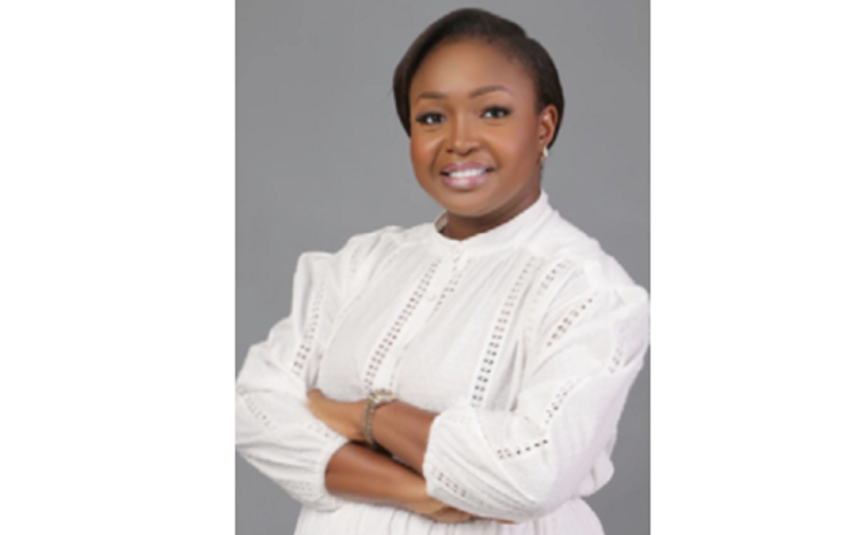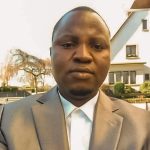Solape Azazi is a writer and documentary producer, an autism advocate and social entrepreneur, a human resources and development professional, and the founder of the Cradle Lounge. She was recently appointed as a national master trainer for the World Health Organisation (WHO) Caregiver Skills Training (CST) programme for children with developmental disorders and delays. In this interview by KINGSLEY ALUMONA, she speaks about her humanitarian endeavours, autism advocacy, among others.
You studied zoology at the university. Did you enjoy studying the course? Did you ever work as a zoologist?
Studying zoology was more of a destiny detour than a destination. I had a genuine love for science and curiosity about life, and zoology was the door that opened at the time. I enjoyed learning about animal biology, ecosystems, and evolutionary behaviour.
But, truthfully, I never practised as a zoologist, not because the field lacked value, but because something bigger kept tugging at me — something rooted in people, purpose, and impact. Life redirected me into human resources and development (HR), and eventually, my lived experience as a parent of a neurodivergent child carved a new path entirely.
In recent years, you have built an impressive career in the non-profit and social advocacy sector. What inspired this area of your work, and what keeps you going since you ventured into it?
Pain has a way of giving birth to purpose. My advocacy was not planned — it was born out of necessity. When my son was diagnosed with autism at age three, I found myself navigating a system that was not designed for us. There was a lack of support, understanding, and access. That isolation lit a fire in me. I realised that if I, with all my education and resources, was struggling, then what about the thousands of other families with no voice, no tools, and no direction?
What keeps me going is that sense of responsibility, the urgent need to fill the gap. Every time I see a parent smile through tears of relief because someone finally gets it, I’m reminded that this work matters. Advocacy is a long road, but I walk it for my son, for other children like him, and for the countless parents silently hoping for change.
How are you managing to sustain your autism advocacy?
Autism chose me. Before my son’s diagnosis, I had not deeply understood autism spectrum disorder (ASD). But living with and loving someone with autism changes your worldview. Suddenly, you see the beauty and brilliance that society often overlooks. Autism became the lens through which I began to view disability rights, inclusion, and neurodiversity.
I began my advocacy formally over eight years ago — first as a parent seeking help, then as an autism specialist and a certified behaviour analyst, and eventually as the founder of Cradle Lounge.
I have sustained the advocacy through collaboration, community, and consistency. I surround myself with other change-makers, I lean on data and lived experience, and most importantly, I never stop learning. Sustainability comes from understanding that this work is not about a trend. Rather, it is a lifelong commitment.
What can you tell us about your child with autism? What is special about him that people admire, and what kind of adult do you want him to grow into?
My son is my greatest teacher. He is artistic, deeply intuitive, musically inclined, and has a heart that senses things words cannot capture. What people admire about him is his creativity and how deeply he experiences the world through textures, rhythms, and colours. He sees things others miss.
I want him to grow into an adult who feels safe being his authentic self. One who is accepted, not in spite of his differences, but because of them. I want him to be supported, included, and respected in whatever field he chooses. Whether he becomes an artist, a chef, or a tech wizard, I want the world to adjust to him, not the other way around.
Tell us about Cradle Lounge and how you leverage it for your humanitarian work. What was the latest project your organisation organised, and how did it impact the beneficiaries?
Cradle Lounge Special Needs Initiative was born out of the need to bridge the gap between awareness and action. It is a nonprofit dedicated to empowering caregivers, training professionals, and advocating for inclusive systems for individuals with developmental disabilities.
ALSO READ FROM NIGERIAN TRIBUNE: VIDEO: Iya Osun, other devotees in festive mood, await Arugba’s procession
One of our recent projects was a four-day free therapy outreach that served over 100 families, offering behavioural assessments, parent coaching, speech and occupational therapy consultations. For many families, this was their first time receiving any form of support. We saw mothers cry, not out of pain, but relief. That is what impact looks like — access, dignity, and hope.
You were one of the speakers at the Guarantee Trust Holding Company (GTCO) 2025 Autism Conference recently held in Lagos, with the theme ‘From awareness to action: 15 years of advancing autism inclusion’. How did this theme resonate with you? And how did the conference impact you?
The theme hit home. For years, we have shouted “awareness” from rooftops, but awareness without action is noise. This conference was a call to move beyond campaigns and hashtags into real policy, support structures, and inclusive practices.
Being part of that platform as a speaker and advocate validated years of work, but more importantly, it reminded me that we are not alone. I connected with other warriors — parents, professionals, policymakers — all aligned in vision. It gave me fuel, new partnerships, and renewed urgency.
At the GTCO Autism Conference, you spoke on ‘From the stage to the streets’. What inspired this choice of title, and what did you intend the audience to take home from it?
I chose that title deliberately. It is easy to create buzz on stages, at conferences, and in the media. But the real question is: What are we doing in the streets, in schools, in homes, in rural clinics? Advocacy must be felt in the everyday lives of families.
For my speech at the GTCO autism conference, I wanted the audience to walk away with one truth: that inclusion must be lived, not just discussed. It is not enough to speak about it — we must fund it, train for it, legislate it, and live it. That is the only way we create meaningful change.
What five things do you think GTCO could do to improve its advocacy and support for children with autism in Nigeria?
GTCO should invest in grassroots interventions and expand programmes to underserved communities; sponsor long-term caregiver training and partner with World Health Organsation (WHO) Caregivers Skills Trainers (CST) to equip more parents; fund inclusive schools or classrooms and model best practices; support local nonprofits and build a network of credible change-makers; and create employment pathways for autistic adults, because inclusion does not end at childhood.
What are your expectations of society when it comes to inclusion, work, career, and relationships for adults with autism?
I expect society to evolve, to see beyond deficits and recognise strengths. Autistic adults deserve access to jobs that match their skills, relationships that honour their communication styles, and workspaces that accommodate sensory needs. We need universal design thinking — not just ramps for buildings, but accommodations for minds. Neurodiversity is not a liability; it is a form of brilliance the world is only beginning to understand.
Tell us about your book and documentary on autism. Are the book and documentary having the desired effect on society? Are you planning to write another book or shoot another documentary?
My children’s book, ‘My Friend Has Autism’, helps young readers understand neurodiversity through friendship. It is used in classrooms and therapy rooms, and I have had parents tell me their children felt seen for the first time.
My documentary, ‘Echoes of Hope: Navigating Autism in Nigeria’, captures raw stories from families, professionals, and communities. It has created conversations across policy tables and parents’ forums alike.
Yes, I am working on my second children’s book titled ‘The Magical Market of Maraba’, which explores a young autistic girl’s sensory world and strengths. I am also developing a new documentary focused on post-diagnosis support, what happens ‘after’ the label. That is where the real struggle begins.
How would you advise parents with an autistic child on how to make the best out of their condition and bring out the best in the child?
First, throw away the idea of “fixing” your child. Your child is not broken. See the child, not just the diagnosis. Second, get educated. Learn about autism, seek support early, and ask questions unapologetically. Third, build a tribe — you cannot do this alone. Community saves. Lastly, celebrate every win, no matter how small. Progress is not always linear. Trust the process, and trust your child.
What are the major challenges you face in your work at Cradle Lounge? And where do you see yourself and your career in five years?
Funding remains a core challenge — not just to run programmes, but also to sustain them. There is also the hurdle of mindset change; challenging deeply rooted stigma takes time.
In five years, I see myself running a fully resourced centre that combines therapy, training, and respite care. I want to expand our work across West Africa, influencing policy and producing content that educates and heals. My ultimate goal? To make inclusion not the exception, but the norm.
WATCH TOP VIDEOS FROM NIGERIAN TRIBUNE TV
- Let’s Talk About SELF-AWARENESS
- Is Your Confidence Mistaken for Pride? Let’s talk about it
- Is Etiquette About Perfection…Or Just Not Being Rude?
- Top Psychologist Reveal 3 Signs You’re Struggling With Imposter Syndrome
- Do You Pick Up Work-Related Calls at Midnight or Never? Let’s Talk About Boundaries






